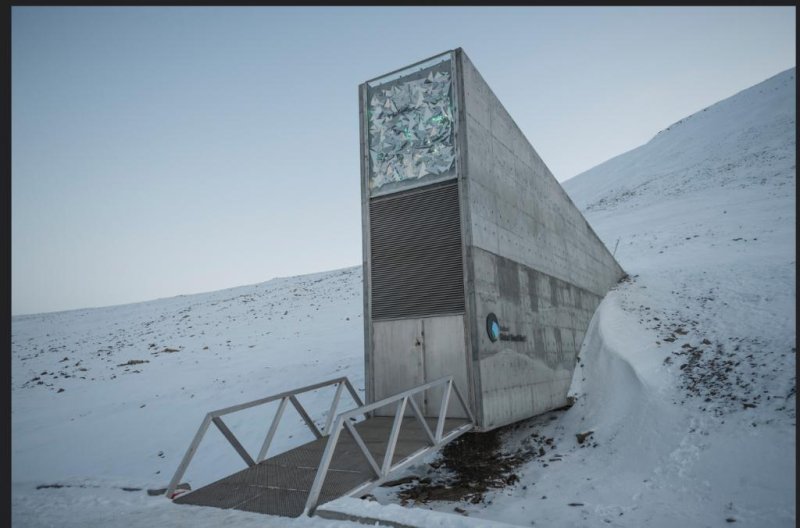The Svalbard Global Seed Vault, more commonly known as the "Doomsday Vault," suffered a water breach from melting permafrost due to climate change, scientist said. Photo courtesy Global Crop Diversity Trust/flickr
May 20 (UPI) -- The remote Arctic "doomsday" seed vault that houses some 800,000 vital crop seeds to be used in the event of a disaster suffered a water breach from melting permafrost due to soaring Arctic temperatures officials said Friday.
The Svalbard Global Seed Vault, more commonly known as the "Doomsday Vault," was build in 2008 in a mountain on the Norwegian island of Spitsberge as a failsafe way to protect important crops in the event of a man-made or natural disaster. An unexpected heat wave in the Arctic triggered melting of snow and ice.
The seeds were protected from the water, but the incident alarmed some officials who thought the layers of permafrost, which is made up of Ice Age-era soil, bone fragments and water, would never melt. The water only made it as far as the entranceway to the seed vault and refroze.
"A lot of water went into the start of the tunnel and then it froze to ice, so it was like a glacier when you went in," said Hege Njaa Aschim, from the Norwegian government, which owns the vault.
Scientist Cary Fowler, who helped create the vault, said the seeds are protected from any sort of melt because the area where the seeds are located is positioned uphill from the vault entrance.
"There's been water intrusion at the front of the tunnel every single year," Fowler told Popular Science. "But they need to study where the water is coming in and the amounts to figure out what the situation is....This whole planet is warming, and that includes Svalbard."















